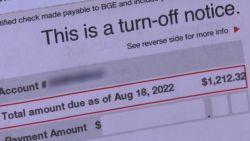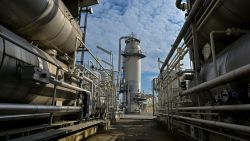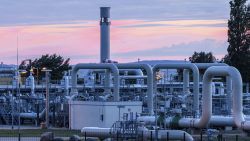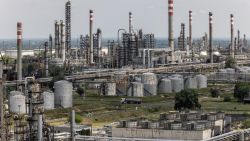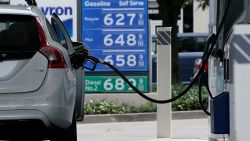The oil crash is blocking American frackers from accessing the cheap credit that fueled their prolific rise. That reversal of fortunes could prove fatal for overleveraged shale oil companies.
The downturn in the oil industry has laid bare just how much America’s rise to superpower status in the energy world was made possible by easy money. Virtually unlimited borrowing allowed shale companies to dramatically ramp up production, whether that oil was needed or not.
Getting locked out of the junk bond market will tip the weakest players into bankruptcy, risking countless US jobs along the way. That’s what happened during the last oil crash that began in 2015.
The looming oil patch bankruptcies underscore the fragile state of the boom-to-bust industry even before the coronavirus crisis.
“These companies were in trouble before COVID-19 happened,” John Kempf, senior director at Fitch Ratings, told CNN Business. “After 2015 and 2016, they never really got their balance sheets back together. When stress came, they weren’t prepared for it.”
Despite a recent rebound, US oil prices have imploded by three-quarters since early January, to just $15 a barrel. The crash was driven by excess supply, especially from Russia and Saudi Arabia, and an unprecedented collapse in demand because of the coronavirus pandemic.
There’s so much crude that the world is running out of space to store it all. That conundrum caused crude to tumble well below zero last week, marking the first instance of negative oil prices since futures launched in 1983.
$43 billion of energy junk bond defaults
Prices are so weak that Rystad Energy has warned that hundreds of US oil exploration and production companies could file for bankruptcy by the end of 2021.
The bankruptcy wave has already started. Earlier this month Whiting Petroleum (WLL) filed for bankruptcy, marking the first high profile Chapter 11 filing of the current crisis. Diamond Offshore Drilling (DO) joined the bankruptcy club on Sunday. Diamond, which provides offshore drilling rigs for Hess (HES), Occidental (OXY) and BP (BP), was posting losses months before the crisis.
Fitch Ratings is warning that more than $43 billion of high-yield bonds and leveraged loans in the energy sector will default in 2020. For context, that’s nearly five times the sector’s average level of defaults over the previous dozen years.
Moody’s Investors Service cut its near-term oil price assumptions this week, forecasting that US oil prices will now average just $30 per barrel in 2020, a price too low for virtually any US shale oil company to turn a profit. Moody’s sees US crude rising to just $40 in 2021.
“Financial risk is rising and likely to remain very high for all but the highest-rated oil and gas issuers,” Moody’s wrote in the report.
Chesapeake Energy at risk
The energy sector dominates Fitch’s Top Bonds of Concern list of troubled debt, accounting for 60% of the list.
Fitch warned several of those companies “could be imminent defaults,” including Chesapeake Energy (CHK), the shale pioneer that recently transitioned from a focus on natural gas to target oil.
Reuters reported Wednesday that Chesapeake is preparing a potential bankruptcy filing and has held talks with creditors about a possible loan to keep its in business while navigating Chapter 11 proceedings. The company did not respond to a request for comment.
Chesapeake’s share price has crashed more than 80% just this year. In order to keep its stock above the $1 minimum required by the New York Stock Exchange, Chesapeake recently launched a 1-for-200 reverse stock split. The shale company also suspended quarterly dividends on preferred stock, noting that the move “does not constitute a default” under debt instruments.
California Resources (CRC), another oil company flagged by Fitch as a potential default, has suffered a 76% drop in its stock this year. The energy company has cut spending to the bone, keeping just the bare minimum needed for “mechanical integrity.”
In response to market speculation about its fate, California Resources released a statement last month saying it is “fighting hard for the best outcome for our shareholders and other stakeholders.”
Fitch also cited elevated default risk at Denbury Resources (DNR), an oil-and-gas driller focused on the Gulf Coast and Rocky Mountain regions. Denbury’s stock is down more than 70% this year. Last month, the company cut its capital budget nearly in half.
Other companies that could imminently default on their debt include Chaparral Energy (CHAP), Colorado-based Jonah Energy, Houston’s Bruin E&P Partners and Vine Oil and Gas, Fitch said.
‘Skittish’ lenders
No one wants to lend to a shale oil company that can’t generate free cash flow at cheap prices. That makes it difficult for frackers to roll over existing debt before it’s due.
“There is no access to capital markets to refinance. Lenders are skittish about giving money to this industry,” said Kempf, the Fitch director.
Moreover, there is investor fatigue given that the energy industry has struggled for years. The S&P 500 energy sector was the worst performer – by a long shot – throughout last decade.
“Portfolio managers are tired of the volatility in oil and gas prices. They don’t want to be in the sector anymore,” Kempf said.
Washington to the rescue?
One big wild card is President Donald Trump’s promise to rescue the oil industry. Trump tweeted on April 21, ta day after crude went negative, that he instructed officials to “formulate a plan” to “make funds available” to oil and gas companies.
“We will never let the great US oil & gas industry down,” the president said.
Treasury Secretary Steven Mnuchin said last weekend that the Trump administration is considering providing a “lending facility” to the energy industry.
“We’re looking at a lot of different options, and we have not made any conclusions,” Mnuchin told Bloomberg News. No concrete details have been released on what this program might look like.
Analysts said oil companies with sturdy investment grade credit ratings will likely have access to these emergency funds.
“We can only make loans to solvent entities with the expectation that the loans will be repaid,” Federal Reserve Chairman Jerome Powell said Thursday while speaking generally about the central bank’s lending abilities.
But it’s not clear whether junk-rated shale oil companies will get access to the funds they need to survive because of their shaky financial conditions.
“I’m not counting on it to protect against defaults,” Fitch’s Kempf said. “A lot of these companies could not access capital markets even before COVID.”




